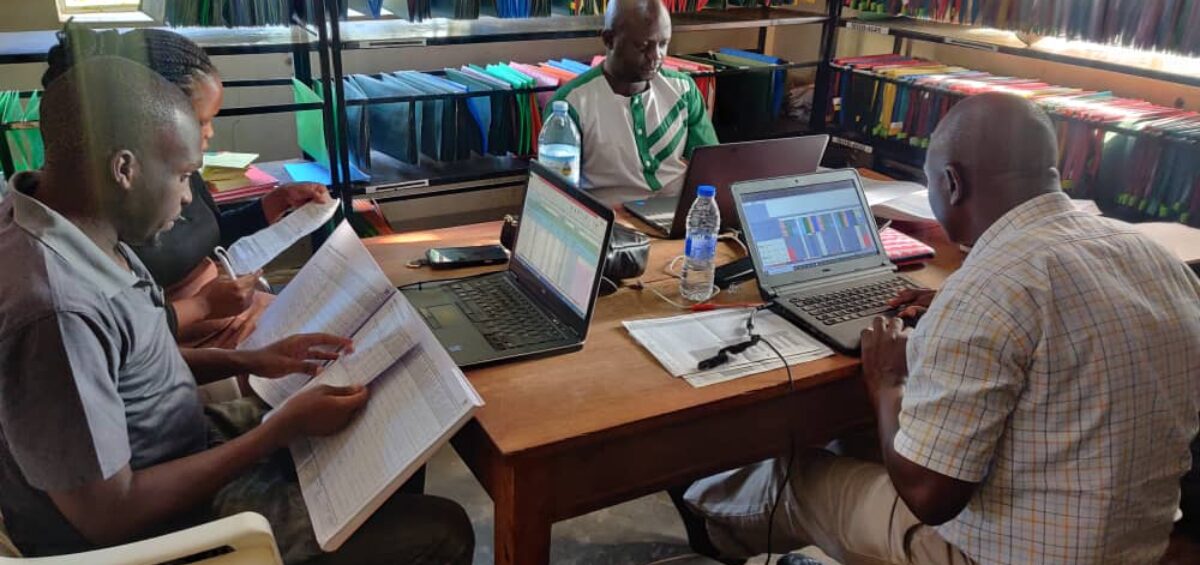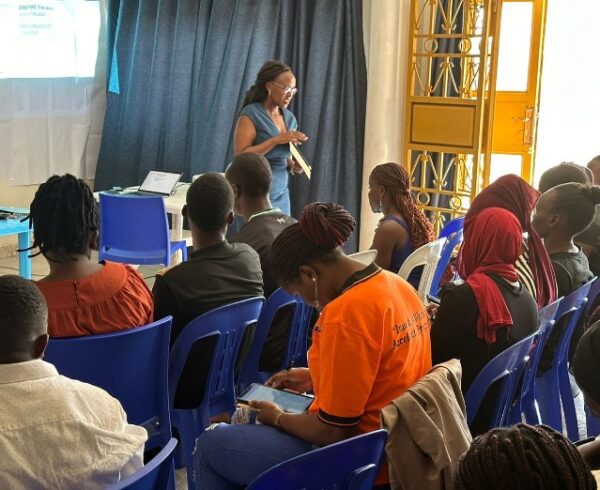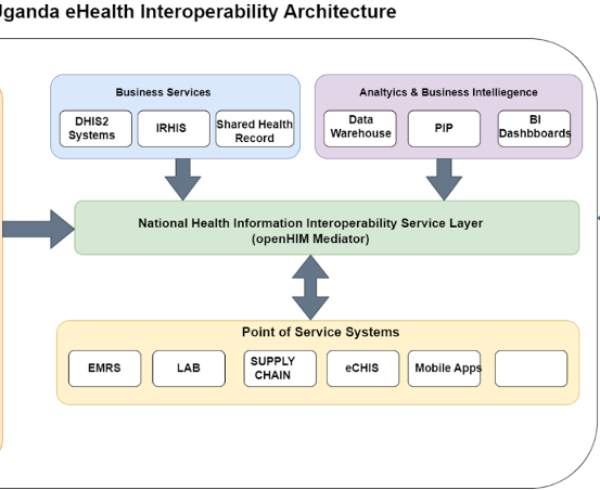In the period from 13th to 24th November 2023, the Ministry of Health (MoH) conducted a Recency Data Quality Assessment and Improvement (DQAI) exercise. This initiative is part of ongoing efforts to ensure accurate and reliable data for planning and managing HIV programs.
The Monitoring and Evaluation Technical Support (METS) program, in collaboration with PEPFAR interagency implementing partners, plays a vital role in monitoring and supporting HIV interventions in Uganda. Recent program reports revealed discrepancies between reported program data and survey findings, highlighting the need for a comprehensive DQAI plan. The assessment was conducted in partnership with CDC, USAID, DoD, MoH, UCSF, and SITES.
The specific objectives were to verify Recency Program data from health facilities, validate reported data against national records, assess data management processes, and address data quality challenges. Key indicators included the number of newly identified HIV-positive clients and the proportion of clients tested for Recency.
The DQAI process comprised two major activities:
- M&E Systems Assessment: Evaluating the Monitoring and Evaluation structure, functions, and capabilities, understanding indicators, reviewing data-collection tools, and assessing data management processes.
- Data Verification: Reviewing documentation to ascertain data sources and manually validating outputs for accuracy in representing on-site counts.
This collaborative effort was aimed at enhancing the impact of Recency services by ensuring the quality of reported data for the period January to June 2023. By addressing data quality gaps, the initiative strives to improve the effectiveness of HIV interventions and client monitoring systems.
Results showing percentage scores for Data Management and Reporting
It was found that the health facility teams had a fair understanding of the data indicators, and had tools to aid data collection, however, efforts to put the collected data to use is still lagging at 70% as well as management processes for the data at 78% as shown below:
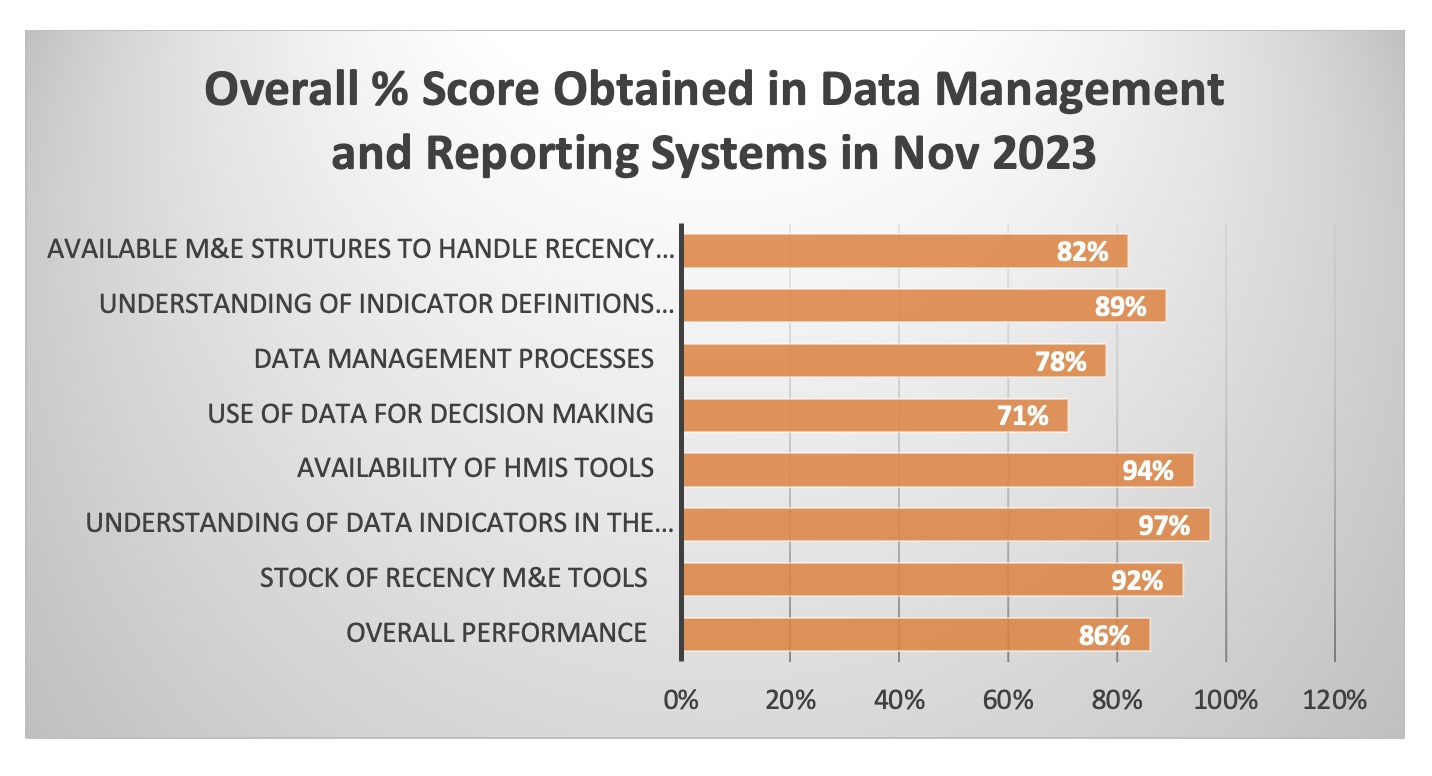

General performance of health facilities in regard to the HIV Recency M&E systems showed an improvement from 77% to 86%.
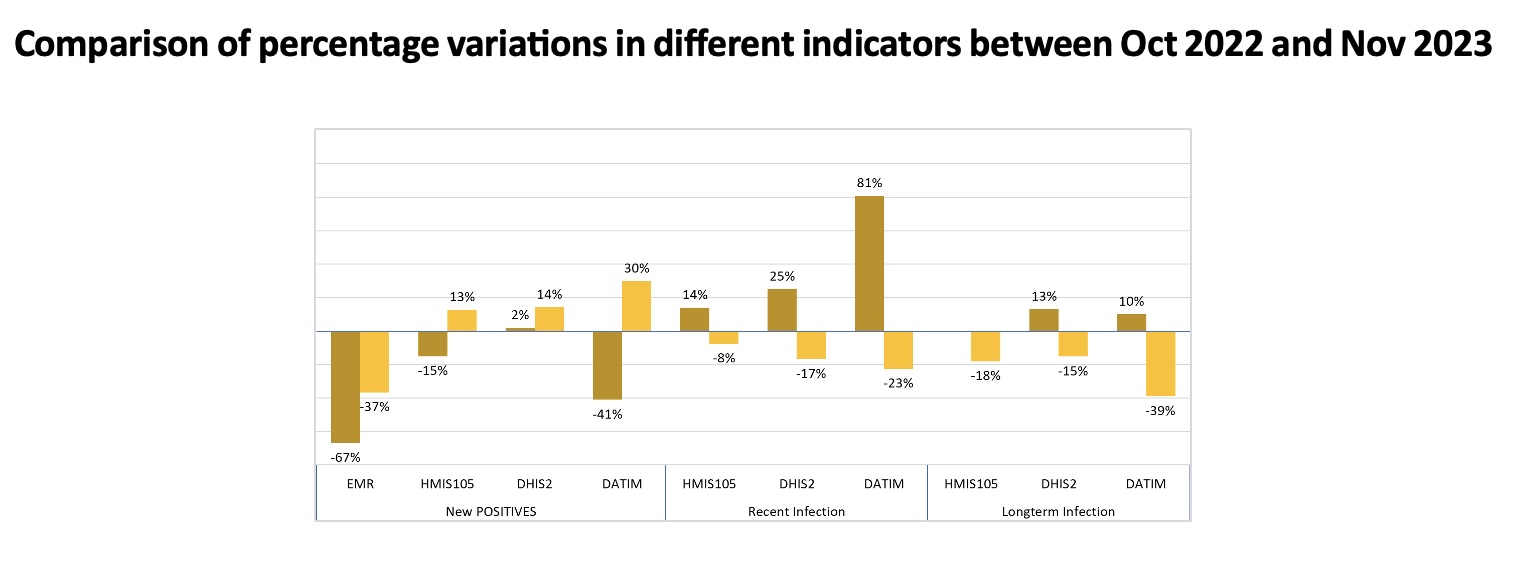
Following data verification by joint count, it was observed that there was general undereporting (negatives) of HIV Recency data across the different data collection tools in the November 2023 DQA, as compareed to the August 2022 DQA where most of the data collection tools had over reporting. On a good note, there was an improvement in reporting in EMRs from -67 to -37.
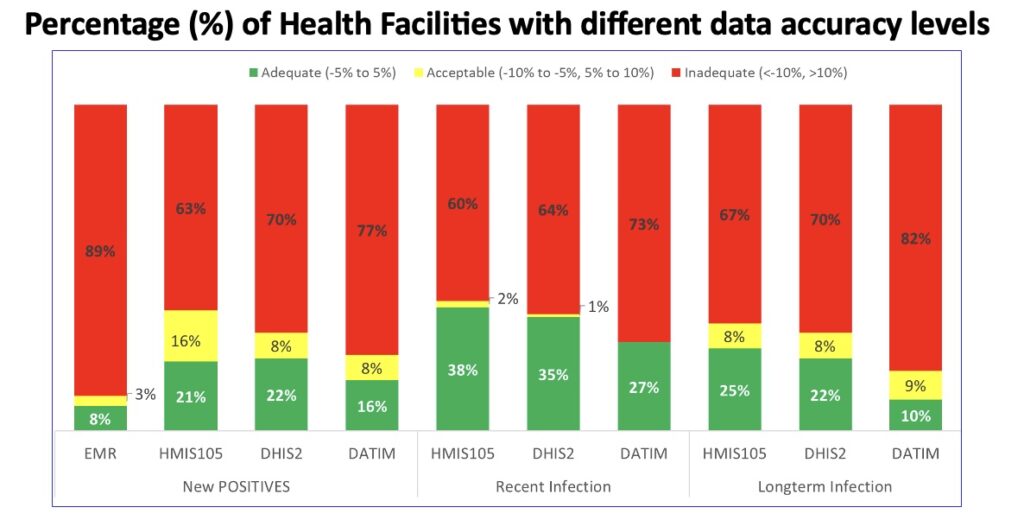
Most of the health facilities had inadequate accuracy levels for HIV Recency data across the different data collection tools at the facility and in the reporting systems.
Next steps
Moving forward, METS will support MOH implement routine support supervision to assist facilities in identifying and resolving data quality gaps; disseminating the Public Health Response Plan (PHRP) to enhance data utilization for decision-making; conducting targeted training and mentorship programs, with a specific focus on regions exhibiting poor data quality performance. Additionally, there is a commitment to supporting regional DQAI and Continuous Quality Improvement (CQI) projects across health facilities. Furthermore, it is important to scale up the utilization of Electronic Medical Records (EMR) for Recency data, aiming to streamline reporting processes and enhance data accuracy across the board.

